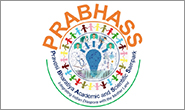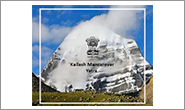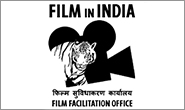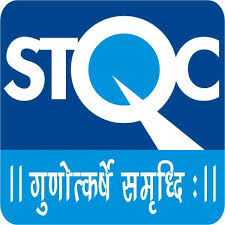Joint Communiqué of the 13th Meeting of the Foreign Ministers of the Russian Federation, the Republic of India and the People's Republic of China
02/02/2015
1. The Foreign Ministers of the Russians Federation, the Republic of India and the People's Republic of China held their 13th Meeting in Beijing, China, on 2 February 2015.
2. The Ministers agreed that Russia, India and China (RIC), as countries with important influence at international and regional levels and emerging market economies, need to further strengthen coordination on global issues and practical cooperation, in the spirit of openness, solidarity, mutual understanding and trust. They emphasized that cooperation between their countries is conducive to maintaining international and regional peace and stability and promoting global economic growth and prosperity.
3. The Ministers reviewed progress in their practical cooperation since the New Delhi meeting on 10 November 2013. They agreed that Russia, India and China should enhance their cooperation in think-tanks, business, agriculture, disaster mitigation and relief, medical services and public health. The Ministers explored potential for cooperation in oil and natural gas production and transportation, as well as in other fields of energy, high tech, environmental protection and connectivity. They agreed to promote parliamentary, media, cultural and youth exchanges including visits of young diplomats. They expressed satisfaction with the outcome of the 13th Trilateral Academic Conference held in Moscow in July 2014, and welcomed the 14th Trilateral Academic Conference to be held in China in May 2015.
4. The Ministers noted the significant and rapid changes underway in the world and underlined that the international community should remain committed to democratization of international relations and multi-polarity. They stressed the importance of pursuing a new type of international relations featuring win-win cooperation. Russia, India and China are determined to build a more just, fair and stable international political and economic order in accordance with the purposes and principles of the UN Charter, the Five Principles of Peaceful Co-Existence and other basic norms of international law. The Ministers stressed the need to respect diversity of civilizations and the independent choice of development path and social system by the people of all countries, support peaceful settlement of disputes through political and diplomatic means. They expressed their support to the idea of adopting a UN General Assembly resolution on the inadmissibility of intervention and interference in the internal affairs of states. They opposed forced regime change in any country from the outside, or imposition of unilateral sanctions based on domestic laws.
5. The Ministers recognized that the year 2015 marks the 70th anniversary of the founding of the United Nations and the victory in the Second World War, and paid tribute to all those who fought against Fascism and for freedom. Russia, India and China affirmed the need to solemnly commemorate those historic moments of great significance in human history and their commitment to safeguarding a fair and equitable international order based on the purposes and principles of the UN Charter, preventing war and conflict and promoting the progress and development of mankind. The Ministers welcomed the inclusion of the item of "Seventieth anniversary of the end of the Second World War" in the agenda of the 69th session of the UN General Assembly, and supported the United Nations and member states to initiate and organize commemorative events.
6. The Ministers reiterated their strong commitment to the United Nations as a universal multilateral organization entrusted with the mandate of helping the world community maintain international peace and security, advance common development and promote and protect human rights. The United Nations enjoys universal membership and is at the very center of global governance and multilateralism. The Ministers recalled the 2005 World Summit Outcome Document. They reaffirmed the need for a comprehensive reform of the United Nations, including its Security Council, with a view to making it more representative and efficient, so that it could better respond to global challenges. Foreign Ministers of China and Russia reiterated the importance they attached to the status of India in international affairs and supported its aspiration to play a greater role in the United Nations.
7. The Ministers reiterated their commitment to strengthening coordination and cooperation in a joint effort to maintain lasting peace and stability in the Asia-Pacific region, welcomed the 4th Summit of the Conference on Interaction and Confidence Building Measures in Asia (CICA) and the Shanghai Declaration adopted at the Summit. The Ministers pledged to work together to seek common, comprehensive, cooperative and sustainable security. They called for the development of an open, inclusive, indivisible and transparent security and cooperation architecture in the region on the basis of universally recognized principles of international law. In this regard, they welcomed the continued discussion on regional security architecture in the Asia-Pacific region under the framework of the East Asia Summit.
8. The Ministers further underlined the necessity to strengthen coordination and cooperation in various regional forums and organizations such as the ASEAN Regional Forum (ARF), ASEAN Defense Ministers Meeting Plus (ADMM-Plus), Asia-Europe Meeting (ASEM) and Asia Cooperation Dialogue (ACD), so as to contribute to maintaining regional peace and stability and to promote regional development and prosperity. In this connection, they agreed to establish a trilateral Russia-India-China consultation mechanism on Asia-Pacific affairs, with the first meeting to be held at an early date.
9. Russia, India and China attached special importance to their cooperation within the Shanghai Cooperation Organization (SCO), regarding it as one of the key instruments in promoting multilateral political, security, economic and humanitarian interaction in the region. China and India shared the plans of Russia’s Chairmanship in the SCO in 2014-2015 and would support and participate comprehensively in preparing the SCO Summit Meeting in Ufa in July 2015. China and Russia welcomed India's application for full membership of SCO and supported India to join the SCO after completing all necessary negotiations and legal processes.
10. The Ministers reiterated that terrorism in all its forms and manifestations committed by whomever, wherever, and for whatever purposes, is a threat to international peace and security, a grave violation of human rights and a crime against humanity. The Ministers affirmed the need for all countries to join efforts in combating terrorism under the auspices of the United Nations, in accordance with the UN Charter and principles and norms of international law and for the robust implementation of relevant UN Security Council resolutions and the Global Counter-Terrorism Strategy. They called for early conclusion of negotiations on the Comprehensive Convention on International Terrorism. The Ministers reiterated that there can be no ideological, religious, political, racial, ethnic, or any other justification for acts of terrorism. They underlined the need to bring to justice perpetrators, organizers, financiers and sponsors of terrorist acts. Highly alarmed by the new trends in international terrorist acts, the Ministers emphasized the need to step up information gathering and sharing, prevent the use of the Internet and other information and communication technologies (ICTs) for the purposes of recruitment and incitement to commit terrorist acts, as well as for the financing, planning and preparation of their activities, block the channels of terrorist movement and financing of terrorism, and promote de-radicalization, while respecting international law.
11. The Ministers were of the view that the international community should make joint efforts to counter the threat of the use of information and communication technologies for military, political, criminal and terrorist purposes through international exchanges and cooperation on the basis of mutual respect, equality and mutual benefit, and build a peaceful, secure, open and cooperative information space. They underscored that sovereignty of a state over the Internet and state conduct of ICT-related activities should be respected. They expressed their support for formulation of universally recognized international rules of responsible state behavior in information space within the UN framework and advancement of the reform of the international Internet governance mechanism as enshrined in the Tunis Agenda. In this regard, the Ministers reaffirmed common views and approaches set forth in the 6th BRICS - Fortaleza Declaration (15 July 2014 ).
12. The Ministers noted that preventing arms race in outer space is in the interests of maintaining international peace and security and for the promotion and strengthening of international cooperation in the exploration and the use of outer space for peaceful purposes, highlighting the prevention of placement of weapons of any kind in outer space as one of its main elements. The Ministers also noted the importance of establishing and developing a more focused dialogue and closer cooperative relationship among representatives of Russia, India and China with a view to advance the work of the Scientific and Technical Subcommittee of the UN Committee on the Peaceful Use of Outer Space (COPUOS).
13. The Ministers supported the political transition in Afghanistan through the presidential elections and security transition from International Security Assistance Force (ISAF) to the Afghan National Security Forces (ANSF). The security transition should be accompanied by adequate measures for increasing the ANSF capacity so that the ANSF should be capable to provide security for all the country and population of Afghanistan. The Ministers affirmed their support for broad and inclusive peace and reconciliation in Afghanistan that is Afghan-led and Afghan-owned, as well as to help Afghanistan’s integration into the region through its expanded trade and transport networks and regional connectivity. The Ministers stressed that it is important for the international community to remain engaged in Afghanistan and fulfill its long-term commitments on civilian and security assistance. They supported the core coordinating role of the United Nations in promoting peace and stability in Afghanistan. The Ministers highly valued the positive results of the Fourth Ministerial Meeting of the Istanbul Process in Beijing, which contributed to strengthen regional cooperation and facilitate peace, rehabilitation and economic reconstruction in Afghanistan. Russia, India and China stressed their commitment to implementing the Beijing Declaration for security and prosperity in Afghanistan and the region.
14. The Ministers affirmed their support for efforts to seek a comprehensive and long-term solution to the Iranian nuclear issue through political and diplomatic means. They welcomed the extension of negotiations between P5+1 and Iran, and hoped that the two sides intensify diplomatic efforts with a view to reaching a comprehensive agreement at an early date. The Ministers encouraged Iran and the IAEA to enhance cooperation to resolve all the outstanding issues. The Ministers stressed that once the IAEA confirms the exclusively peaceful nature of Iran’s nuclear programme by means of applying stringent monitoring and resolving all past and present issues of concern, Iran will fully enjoy all the rights to peaceful uses of nuclear energy, including uranium enrichment under strict IAEA safeguards and consistent with its international obligations.
15. The Ministers discussed the developments of the Israel-Palestine conflict. They stressed that its further deterioration may have a negative impact on the prospects of both the Peace Process and Middle East affairs on the whole. They urged Israel and Palestine to exercise restraint and take effective measures to avoid further escalation of tensions. The Ministers supported the resolution of the Israel-Palestine conflict based on the relevant United Nations resolutions, the principle of land for peace, the Arab Peace Initiative, with the purpose of establishing a sovereign, independent, viable and united State of Palestine, with East Jerusalem as its capital, living within secure and recognized borders, side by side, at peace with Israel. They appealed to the international community, particularly the Middle East Quartet, to continue its efforts aimed at achieving this end. The Ministers supported the UN Security Council in playing its due role in solving the Israel-Palestine conflict. The Ministers urged international community to provide continued assistance and support for alleviation of humanitarian situation in Palestine.
16. The Ministers discussed the latest developments in Syria. They reiterated that there is no military solution to the Syrian crisis and urged all parties to abjure violence and resume peace negotiations based on "Geneva Communiqué" of June 2012. The Ministers called on the Syrian government and opposition factions to resume the Geneva process as soon as possible, stick to the approach of political settlement and draw on the useful experience of others to find a "middle way" that conforms to Syria's national conditions and accommodates the interests of all parties, and start the national reconciliation process at an early date. The Ministers supported the mediation efforts by the UN Secretary-General and his special envoy to secure "incremental freeze zones" and to allow humanitarian aid to civilians. They highly valued the efforts by Russia to convene the first meeting of inter-Syrian consultations between representatives of the Syrian Government and opposition groups in January 2015. The Ministers welcomed the important achievements made in the elimination of Syria's chemical weapons, and complimented the Organizations for the Prohibition of Chemical Weapons (OPCW) in its efforts towards elimination and destruction of chemical weapons in Syria. They expressed support for the efforts of the Syrian Government to combat terrorism. They called on all parties in Syria to implement relevant resolutions of the UN Security Council, and fully cooperate with the United Nations and relevant international organizations in their humanitarian efforts. They called on the international community to abide by the guiding principles of the United Nations on humanitarian assistance.
17. The Ministers expressed deep concern over the ongoing turmoil in Iraq and its spillover effects, and emphasized their respect for the independence, sovereignty and territorial integrity of Iraq, and their support for the efforts of the Iraqi government to uphold domestic stability and combat terrorism. They hoped that all parties in Iraq enhance unity and reconciliation so as to swiftly restore national stability and social order. The Ministers urged all parties concerned to refrain from interference, which could further aggravate the situation. They called on all parties to support the Iraqi government and people in their efforts to build a stable, inclusive and united Iraq taking into account the interests of all segments of the Iraqi society. The Ministers urged the international community to provide continued assistance and humanitarian support for Iraqi refugees and internally displaced people.
18. The Ministers expressed deep concern about the current crisis in Ukraine, and called on all parties in the inter-Ukraine conflict to exercise restraint and fully implement the Minsk Protocol, engage in comprehensive dialogue and pursue a peaceful resolution of the crisis through political negotiations. The Ministers stressed that an independent, objective, fair and transparent international investigation should be carried out for the crash of Malaysia Airlines Flight MH17, and parties concerned should engage in cooperation within the framework of Resolution 2166 of the UN Security Council.
19. The Ministers expressed their support for improved global economic governance to ensure sound and stable growth of the world economy. They called for immediate reform of the international financial system to increase the voice and representation of emerging markets and developing countries, with a focus on the implementation of the 2010 IMF Quota and Governance Reform by the end of this year. They stressed the need for international financial institutions to provide more resources to promote development. The Ministers reiterated their commitments to enhancing cooperation within the framework of G20, and called on all G20 members to strengthen macroeconomic policy coordination, reject protectionism as well as all forms of unilateral measures of economic pressure taken without relevant decisions of the UN Security Council, safeguard the multilateral trading system centered around the WTO, build an open world economy, and play an important role in global economic governance. Russia and India welcome and support the efforts of China to host the 2016 G20 Summit. The Ministers reiterate their readiness to contribute to its successful results.
20. The Ministers reaffirmed commitment to the World Trade Organization (WTO) as the preeminent global forum for trade, including negotiating and implementing trade rules, settling trade disputes and supporting development through the integration of developing countries into the global trading system. In this regard, they reaffirmed commitment to the Doha Development Agenda as well as to the regular work of the WTO. The Ministers expressed their support for the forthcoming WTO 10th Ministerial Conference to be held in Nairobi, Kenya in December 2015. They underlined the importance of tangible progress at the Conference toward a successful conclusion of the WTO Doha Round.
21. The Ministers noted that the emerging market economies are a significant driving force for the world economic growth and have played an important role in promoting the world economic recovery. The Ministers fully recognized the significance of the UN Summit for the adoption of the Post-2015 Development Agenda to be held in September 2015. They called on the international community to accelerate their efforts towards attainment of the MDGs and formulate the Post-2015 Development Agenda under the principles of equity, democracy, transparency, member states driven and consensus. The Post-2015 Development Agenda, while focusing on poverty eradication and promotion of common development, should attach great importance to addressing the inequality and disparity between the North and the South and build a renewed global development partnership of win-win cooperation. The Ministers pledged to strengthen coordination and cooperation in the inter-governmental negotiating process.
22. The Ministers called on the international community to actively implement the follow-up process of the 2012 United Nations Conference on Sustainable Development in accordance with the principle of "common but differentiated responsibilities". They welcomed the adoption by the UN General Assembly of the proposal of the Open Working Group on Sustainable Development Goals as the main basis for integrating the SDGs into the Post-2015 Development Agenda. They held the view that in promoting sustainable development, the international community should fully respect the national conditions and development paths of different countries, and focus on helping developing countries solve the problems of financing, technology and capacity building and achieve common development.
23. The Ministers reiterated the importance attached by the three countries to the issue of climate change, and expressed their readiness to work together to further strengthen international cooperation to address climate change and its adverse effect. The Ministers welcomed the adoption of the “Lima Call for Climate Action” by the 20th United Nations Framework Convention on Climate Change (UNFCCC) Conference of the Parties (COP20). They expressed confidence that the 21st session of UNFCCC to be held in 2015 will be able to adopt a protocol, another legal instrument or an agreed outcome with legal force under the Convention applicable to all parties, in accordance with the principles of equity, common but differentiated responsibilities and respective capabilities.
24. The Ministers noted that collectively BRICS economies have consolidated their position as the main engines for sustaining the pace of the international economy as it recovers from the recent economic and financial global crisis. Emerging market economies and developing countries continue to contribute significantly to global growth and will do so in the years to come.
25. The Ministers welcomed the successful conclusion of the 6th BRICS Summit, particularly the signing of the Agreement on the New Development Bank and the Treaty for the Establishment of a BRICS Contingent Reserve Arrangement. They agreed to build a closer economic partnership in keeping with the BRICS spirit of openness, inclusiveness and mutually beneficial cooperation to facilitate the market inter-linkages, financial integration, infrastructure connectivity as well as people-to-people contacts, cultural and educational exchanges among BRICS countries. The Ministers welcomed the decision taken by the Fortaleza Summit on opening negotiations on the Draft Strategy of Multilateral Economic Cooperation and Framework of BRICS Closer Economic Partnership. China and India expressed their full support to Russia for a successful 7th summit of the BRICS leaders in July 2015.
26. The Ministers highly valued the fruitful achievements of the 22nd APEC Economic Leaders' Meeting, including launching the process of Free Trade Area of the Asia-Pacific (FTAAP), promoting innovative development, economic reform and growth and enhancing connectivity of the Asia-Pacific. They commended China’s efforts in making the conference a full success and deemed that the Meeting is of great significance in achieving long-term development and common prosperity of the Asia-Pacific region. Acknowledging India's important role in driving global economic growth, and supporting the openness of APEC, China and Russia would welcome India’s participation in APEC.
27. The Ministers stressed the importance of regional connectivities, which will inject strong impetus in enhancing political mutual trust, economic cooperation, and promoting cultural and people-to-people exchanges. In this context, they discussed initiatives, including China's initiatives of the Silk Road Economic Belt and the 21st Century Maritime Silk Road. They welcomed synergy of various initiatives to improve regional connectivity in Asia. They emphasized the necessity to explore all connectivity options for greater economic integration of the common region and stressed that the three countries will closely coordinate and work together to ensure that various initiatives bear fruit and benefit all countries and people in the region.
28. The Ministers expressed their deep concern over the spread of the Ebola virus in some African countries and the damage it caused to the health and safety of the local people. They decided to continue to work hand in hand in helping the African countries curb and prevent the spread of the Ebola. They supported the leading and coordinating role of the United Nations and the World Health Organization in combating the disease. The Ministers called on the international community, with a long-term prospective to help African countries strengthen their public health system and capacity building.
29. The Foreign Minister of the Russian Federation and the External Affairs Minister of the Republic of India extended their warm appreciation and sincere gratitude to the Foreign Minister of the People's Republic of China for hosting and making excellent arrangements for the meeting in Beijing.
30. The Ministers decided to hold the next trilateral meeting in Russia in the second half of 2015.





























